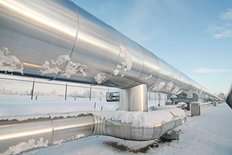- Nouryon will increase bio-steam use at its Hengelo salt production site.
- Bio-steam from Twence will cut CO2 emissions by 50,000 tons annually.
- The new biomass facility will save up to 80 million cubic meters of natural gas per year.
- Almost half of Nouryon's global energy consumption is from renewable sources.

Increased Bio-Steam Use
Nouryon will increase the use of bio-steam at its salt production facility in Hengelo, Netherlands, enhancing sustainability and reducing carbon dioxide emissions. The bio-steam is produced by waste processing company Twence.
Significant Emission Reductions
The bio-steam will enable Nouryon to cut CO2 emissions by up to 50,000 tons per year, equivalent to approximately 400 million car kilometers. This initiative is part of Nouryon's ongoing efforts to improve energy efficiency and sustainable energy use in salt production.
Energy Savings
Nouryon uses steam from Twence to remove water from brine, producing high-purity salt. Previously, half of this steam was certified as sustainable based on the bio-content of the waste. With Twence's new biomass facility, additional fully sustainable steam produced from waste wood is now available. This will save up to 80 million cubic meters of natural gas annually, equivalent to the consumption of about 33,000 to 45,000 households.
Global Renewable Energy Initiatives
Currently, nearly half of Nouryon's worldwide energy consumption comes from renewable sources. The company has transitioned from fossil fuels to sustainably-produced steam at its Delfzijl site in the Netherlands and signed a new energy contract to increase renewable energy usage at its facilities in Sweden. Additionally, Nouryon has initiated a green energy purchasing consortium, facilitating the construction of two Dutch wind farm projects.

